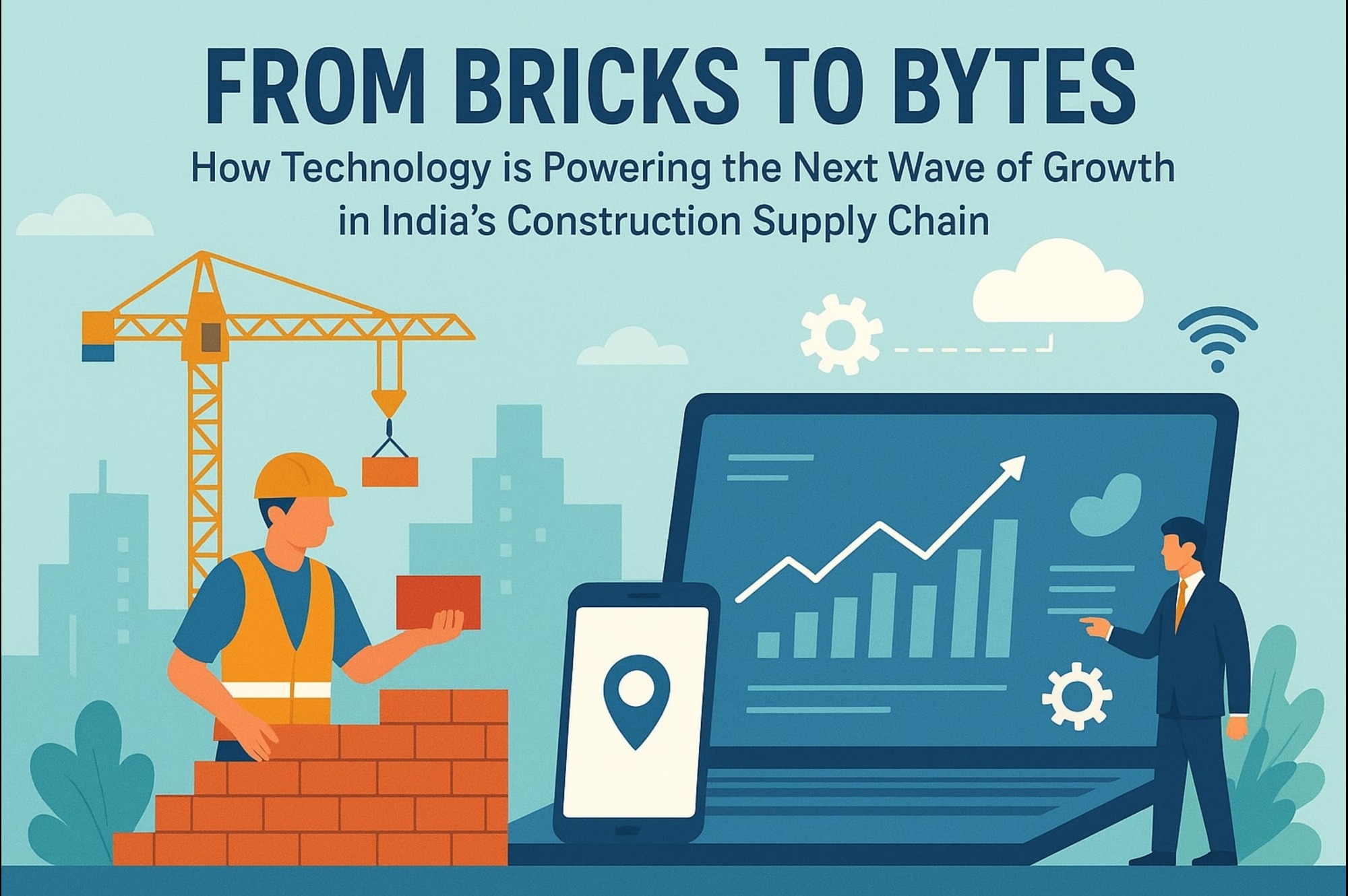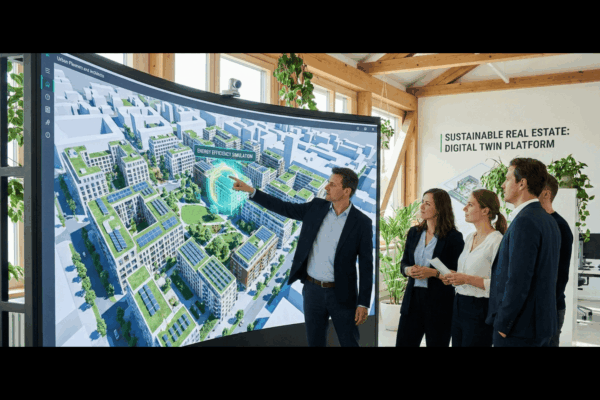From bricks to bytes: How technology is powering the next wave of growth in India’s construction supply chain
by Ronak Morbia, CMD, Arisinfra Solutions
Technology is fundamentally transforming India’s construction supply chain, catalyzing growth and improving efficiency. For decades, India’s construction supply chain was rooted in manual processes, in-person transactions, and complex, multi-layered logistics. Today, we are witnessing a profound transformation—one that is moving our sector from bricks to bytes, with technology at every link in the construction value chain being reimagined for greater efficiency, transparency, and growth.
A Digital Evolution: Platforms and Processes
Indian construction ecosystem has steadily embraced technology over the past two decades. The integration began modestly, with digital platforms streamlining connections between supplier and buyer. Between 2000 and 2015, these initiatives evolved into transaction-based marketplace models, enabling businesses to generate revenue through commissions and transaction fees with every online deal closed.
Between 2015 and 2021, the next wave of innovation arrived in the form of eB2B platforms. These didn’t just connect buyers and sellers—they enabled vendor financing, logistics support, and full-stack supply solutions. With a focus on usability and business efficiency, these platforms started to drive operational intelligence across the ecosystem.
Looking forward, as AI and deep tech mature, the construction supply chain will be powered by insights, predictive analytics, and real-time responsiveness. Yet, despite these advancements, human judgment will continue to play a critical role—especially in navigating complexity, contextual decisions, and on-ground execution.
The Backbone Technologies: The Digital Framework Behind Progress
Advanced technologies are fueling momentum and enabling the construction supply chain to become more efficient, unlocking growth at every stage. Cloud-based procurement platforms and centralized marketplaces have made sourcing faster, cheaper, and more reliable. Real-time price comparisons and digital catalogues ensure transparency and empower contractors to make informed purchasing decisions.
Artificial Intelligence (AI) and Machine Learning (ML) now power demand forecasting, optimize stock levels, automate logistics planning, and generate strategic business intelligence—enabling more informed negotiations and supply decisions. The Internet of Things (IoT) has enabled real-time tracking of materials, predictive maintenance, and enhanced site safety—all of which were unimaginable just a decade ago.
Moreover, Application Programming Interfaces (APIs) now allow real-time reporting, performance updates, and seamless communication between suppliers and contractors. Blockchain and Supply Chain Management (SCM) software further ensure secure payments, prevent fraud, and maintain transparent records—helping a traditionally fragmented sector move toward integration.
The Payoff: Productivity, Sustainability, and Strategic Outcomes
For those who have embraced this digital shift, the rewards are compelling. Project logistics can be optimized significantly shortening timelines and freeing up working capital. Inventory waste is down due to precise forecasting and real-time tracking. Companies adopting end-to-end SCM solutions are already seeing significant gains in productivity.
Sustainability is another key outcome. Digital traceability of materials, optimized routes for transportation, and just-in-time inventory are reducing carbon footprints and aligning operations with global ESG goals. Quality and risk management improve, as digital platforms anticipate disruptions and empower proactive responses.
Overcoming India’s Unique Supply Chain Challenges
Despite a surge in digital transformation, the construction B2B segment in India remains among the least penetrated—only 2-3% of the sector had adopted tech-led models as of 2023. Key obstacles include the high cost and generic nature of SaaS offerings that seldom address the construction sector’s end-to-end requirements, and a general reluctance among stakeholders to switch from legacy workflows to new systems. Recognizing this gap, Arisinfra has prioritized sector-specific digital tools that are tailored to the nuanced needs of construction logistics, vendor onboarding, and material tracking—allowing us to remain agile despite fragmented ground realities
Yet change is on the horizon. Government flagship programs like Digital India and Make in India specifically encourage digitization in supply chain management. These policies are promoting AI-based project management, BIM integration, supply chain automation, and the development of digital procurement ecosystems.
The overarching promise is to use digital technology to optimize the entire construction value chain, cut down on project delays and costs, enhance sustainability, and build a world-class infrastructure ecosystem supported by a tech-enabled workforce. Policies for 2025 reflect a commitment to supporting construction businesses—large and small—in embracing this transformation, and leveraging public procurement and subsidies to accelerate the change.
Human Ingenuity at the Core
No matter how advanced our software becomes, human experience, intuition, and empathy remain irreplaceable. Technology’s true value is realized when it augments our decision-making and strengthens the collaborative bonds that define successful projects.
Charting the Road Ahead
As we stand at the cusp of this new era, it is clear that digitization is not just a trend but an imperative for resilience and competitiveness in India’s construction supply chain. By integrating intelligent platforms, fostering real-time communication, and empowering our workforce to engage confidently with these tools, we are laying the foundation for sustained, technology-driven growth. Companies like Arisinfra are already demonstrating how this can be done at scale—bridging traditional workflows with smart technologies to deliver both operational efficiency and stakeholder trust.
The journey from bricks to bytes is well underway. The next decade will see our industry not only catch up with global best practices but also pioneer new standards in construction supply management—driven by technology, but defined by people.
Tags
















